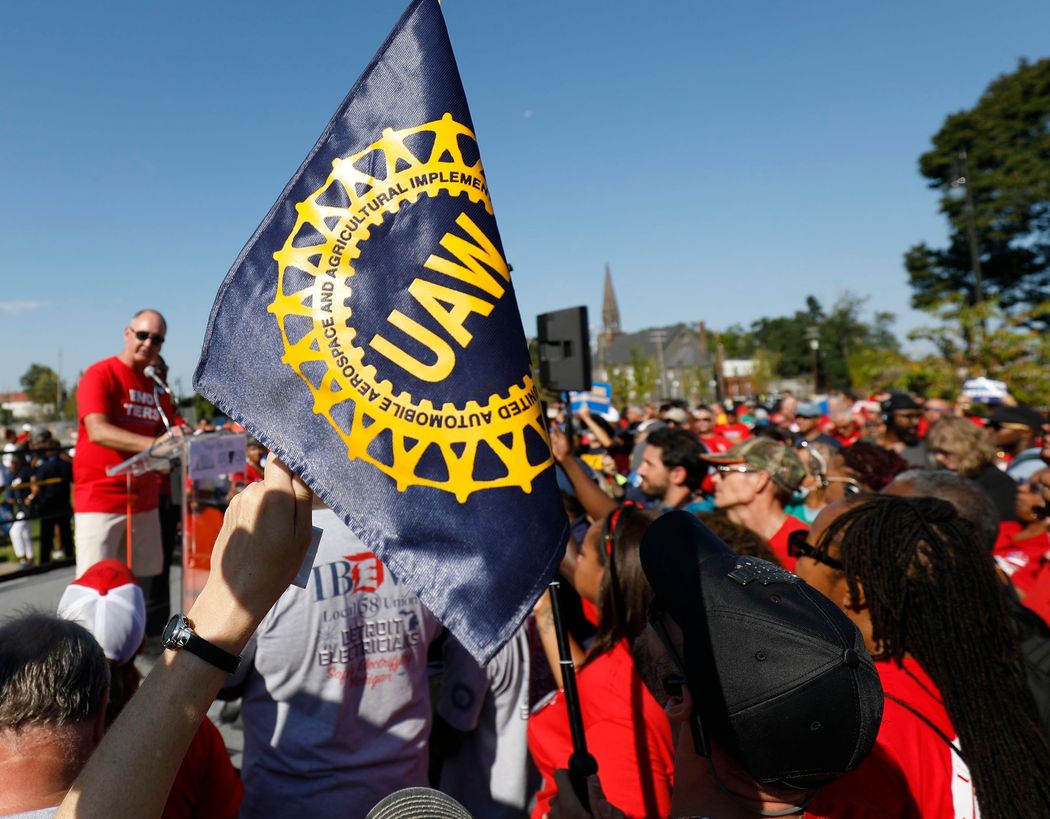
Greg Volynsky is a student at Harvard Law School.
In Today’s News & Commentary, United Auto Workers strike against the Big Three.
For the first time in its 88-year history, the United Auto Workers (UAW) union has called a strike against all three Detroit automakers simultaneously. On Friday, roughly 13,000 U.S. auto workers walked off the job, due to a significant divide between the union’s contract demands and the offers of Detroit’s three major car manufacturers. The UAW called the strike “our generation’s defining moment . . . across the entire working class”, while Reuters called it “the most ambitious U.S. industrial labor action in decades.”
In an “absolutely unprecedented” move, the UAW has engaged in a limited “Stand Up Strike”, involving—for now—fewer than 10 percent of the union’s nearly 150,000 members. The union explained that “[t]his is a strike that grows over time, giving our national negotiators maximum leverage and maximum flexibility.” By calling a limited strike and targeting plants producing vehicles with lower profit margins, the UAW is mounting pressure without cornering the companies or squeezing its own strike fund. Professor Marick Masters of Wayne State University in Detroit summarized, “You put an animal in the corner and it’s dangerous.”
The UAW is demanding a 36 percent wage increase over four years, having conceded the initial demand of a 46 percent raise. After initially proposing around 9 or 10 percent four-year raises, GM and Ford have proposed 20 percent, while Stellantis has offered a 17.5 percent. Beyond wage increases, the UAW is advocating for the restoration of cost-of-living pay raises, elimination of varying wage tiers, a 32-hour four-day workweek, pension boosts, and other benefits.
The strike comes four years after a 40-day GM strike, involving 48,000 workers, that cost the company $4 billion. Moody’s Analytics estimates a six-week strike could cost each of the companies $5.4 billion. When the companies said they cannot afford the wage increase the union demands, UAW President Shawn Fain responded, “The cost of labor that goes into a vehicle is 5%. They could double our wages, not raise prices of vehicles, and they would still make billions.” The three automakers reported a combined $250 billion in profits over the past decade.
The strike is led by Fain, who was an electrician and UAW member for two decades before being elected to lead the organization in late March of this year. As Swap reported, Fain advocated for a more aggressive negotiating strategy, running on a platform of “No corruption. No concessions. No tiers.”
Roughly 97 percent of union members voted to authorize a strike in late August. As I reported earlier this month, the UAW filed a labor complaint against GM and Stellantis, alleging they failed to bargain in good faith as the union contract neared expiration. Fain termed threats of plant closures “economic terrorism.”
President Biden is expected to deliver remarks on the strike. The White House said President Biden has been in touch with Fain and leaders of the auto companies. As Michelle reported yesterday, the Biden administration may take “economic measures” to protect the Big 3’s smaller supplier firms and prevent supply chain disruption.






Daily News & Commentary
Start your day with our roundup of the latest labor developments. See all
July 11
Regional director orders election without Board quorum; 9th Circuit pauses injunction on Executive Order; Driverless car legislation in Massachusetts
July 10
Wisconsin Supreme Court holds UW Health nurses are not covered by Wisconsin’s Labor Peace Act; a district judge denies the request to stay an injunction pending appeal; the NFLPA appeals an arbitration decision.
July 9
the Supreme Court allows Trump to proceed with mass firings; Secretary of Agriculture suggests Medicaid recipients replace deported migrant farmworkers; DHS ends TPS for Nicaragua and Honduras
July 8
In today’s news and commentary, Apple wins at the Fifth Circuit against the NLRB, Florida enacts a noncompete-friendly law, and complications with the No Tax on Tips in the Big Beautiful Bill. Apple won an appeal overturning a National Labor Relations Board (NLRB) decision that the company violated labor law by coercively questioning an employee […]
July 7
LA economy deals with fallout from ICE raids; a new appeal challenges the NCAA antitrust settlement; and the EPA places dissenting employees on leave.
July 6
Municipal workers in Philadelphia continue to strike; Zohran Mamdani collects union endorsements; UFCW grocery workers in California and Colorado reach tentative agreements.